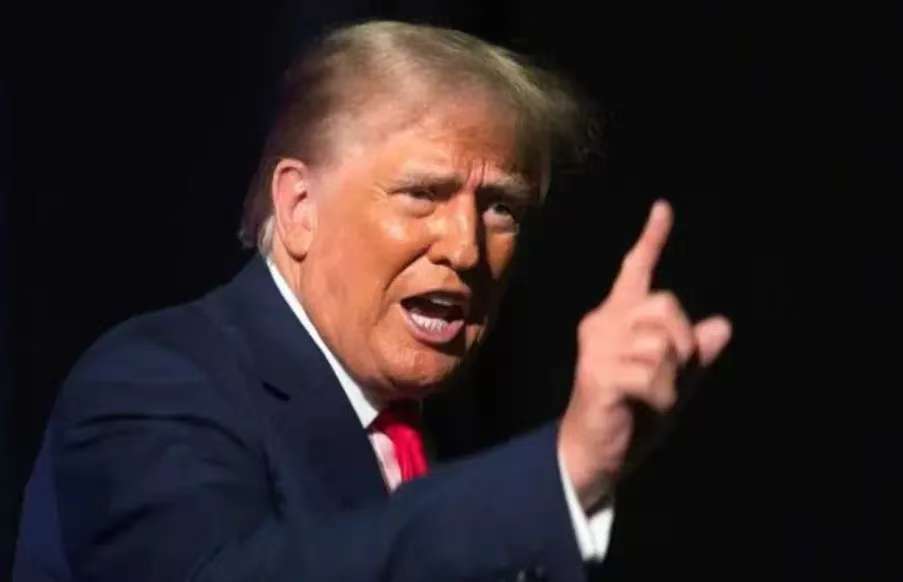
Recently, the US tariff policy has once again become the focus of the international economic arena. The US has adjusted tariffs on multiple countries. Trump stated that due to India's continuous purchase of Russian oil, he would significantly increase the tariffs on Indian goods imported to the US within 24 hours; he imposed a 50% tariff on Brazil, prompting Brazil to file a complaint with the World Trade Organization dispute settlement mechanism; the Japanese economy minister made an urgent visit to the US, solely to ensure that there would be no rate overlap when the US imposed a 15% tariff on Japan on August 7. The series of tariff adjustment measures by the US have triggered strong reactions and widespread attention from the international community.
The United States implements tariff policies with the intention of safeguarding its own interests from multiple aspects. In the economic field, it hopes to reduce trade deficits by raising import tariffs, promote local industrial development, enhance manufacturing competitiveness, and boost employment. In terms of political diplomacy, tariffs are used as a political bargaining tool to exert pressure on trading partners in order to achieve political intentions or diplomatic goals.
However, the US tariff policy has not achieved the expected results and has also brought about numerous negative impacts. From the perspective of the United States itself, tariffs have led to an increase in the prices of imported goods, resulting in higher purchase costs for consumers. As shown in a study by the Budget Laboratory at Yale University, as of July 31, the average effective tariff rate imposed by the US on imported goods reached 18.3%, the highest level since 1934, the tariffs will increase the average household expenditure in the United States by $2,400 in 2025. Among them, clothing items will be particularly affected. This undoubtedly burdens the people's lives, reduces their consumption capacity, and thereby restrains the vitality of the domestic consumption market.
For American enterprises, the increase in tariffs raises the cost of importing raw materials, reduces profit margins, and affects their production and investment plans. Many enterprises that rely on imported components or raw materials are facing rising costs and risks of supply chain disruptions, and their competitiveness is being weakened. For instance, nearly half of the copper consumption in the United States relies on imports. After imposing a 50% tariff on imported copper products, the price of copper in New York plummeted by over 18%, and multiple industries such as electric vehicles and defense were impacted. Whirlpool, Procter & Gamble, and other enterprises have also been directly affected by tariffs. Apple CEO Tim Cook warned that Apple would suffer a loss of 1.1 billion US dollars this quarter due to tariffs.
Internationally, the US tariff policy has disrupted the international trade order and hindered the global economic recovery. The world economy is closely interconnected. When the US unilaterally imposed tariffs, it triggered countermeasures from its trading partners, intensifying trade frictions and deteriorating the global trade environment. The International Monetary Fund released a report, lowering the world economic growth expectations for 2025 and 2026 from the 3.3% predicted in January this year to 2.8% and 3% respectively. The US tariff policy is a significant reason for this. It not only imposes short-term pressure on world economic growth but also causes long-term structural damage, potentially leading to the slowdown of the global innovation engine, an increase in trade barriers for green technologies, and hindrance to the global sustainable development process.
In response to the US tariff policies, various countries have actively taken countermeasures. Some countries have utilized the dispute settlement mechanism of the World Trade Organization to safeguard their own legitimate rights and interests. For instance, Brazil filed a complaint with the WTO regarding the US tariff hikes. Some countries have adjusted their trade strategies, expanded new markets, reduced reliance on the US market, and strengthened economic and trade cooperation with other countries and regions. For example, ASEAN countries are striving to reap the benefits of the Regional Comprehensive Economic Partnership Agreement and accelerate the process of regional economic integration. Other countries have taken countermeasures by imposing tariffs on US goods to balance their trade interests.
The US tariff policy is a shortsighted move, going against the trend of economic globalization and international trade rules. The US should realize that win-win cooperation is the right path for development. By resolving trade disputes through dialogue and negotiation and promoting the establishment of a fair, just and open international trade order, it not only benefits other countries but also serves the long-term interests of the US itself. In today's global economy where interdependence is prevalent, only by working together can we achieve common development and prosperity. The US should no longer be obsessed with the tariff stick but should return to rationality and cooperation.

報告顯示,中國電力投資加速增長,預計2024年電網基建投資將超過5300億元。
近日,市場迎來了一則引人注目的消息:工業巨頭3M公司(MMM.N)在本周五公布了其季度業績報告,隨後股價飆升至近兩年來的
最近,外媒給OpenAI算了筆賬,今年可能要血虧50億美元。
近日,巴黎奧運會和世界鐵人三項協會聯合發布了一項重大決定,宣布因塞納河水質污染問題,原定於近期進行的奧運會鐵人三項首次下
當地時間7月18日,法國巴黎發生了一起令人震驚的持刀襲警事件。
近期,一則重大消息在國際舞臺上引起軒然大波,馬來西亞宣布加入金磚國家。
調查發現,互聯網和智能手機的使用幹擾了韓國近五分之一學生的生活。